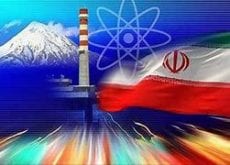iranintl – A former Iranian official, implicated in smuggling 2.4 tons of gold, returned from Canada where many individuals linked to the Islamic government have found refuge.

Mostafa Niazazari, recently back in Iran, was a key figure in the Tabari network, named after Akbar Tabari, the Judiciary’s former Executive Vice President and Finance Director for over two decades. His network orchestrated a massive corruption and bribery scheme involving numerous officials, most of whom evaded accountability, as is often the case with individuals tied to the Islamic Republic. Transparency International ranked Iran 150th out of 180 countries in its 2021 Corruption Perception Index as one of the world’s most corrupt countries.
Niazazari’s return garnered significant coverage in Iran’s state media, with one newspaper labeling him an “asset” of the Islamic Republic. The reformist daily Shargh quoted him as saying, “Ambiguities related to Mr. Tabari’s case have been resolved, and obstacles to return have been eliminated.”
Living in a $7-million mansion in Canada’s West Vancouver since fleeing Iran during Tabari’s investigation, Niazazari represents a pattern of Iranian officials seeking refuge in Canada for good or until they can safely return. His office in the same city is valued at $5 million.

Despite Canada’s measures to deny entry to officials of the Islamic Republic, the country remains one of the safe havens of regime officials who are at their low in their relations with the government in Trehan. Most of Ottawa’s restrictions do not lead to tangible results because the ban on regime officials “applies to those who were senior officials at any time from November 15, 2019, onwards,” limiting the punitive impact of the measure.
In 2019 and 2020, a wide-ranging investigation and trial implicated dozens of individuals in corruption schemes that took place during the tenure of former Judiciary chief, Sadegh Amoli Larijani, who was removed from his post in early 2019. The Larijani family enjoyed unparalleled power and influence for more than a decade. Another brother, Ali Larijani was Speaker of Iran’s parliament until May 2020. The case was perceived as a deliberate effort to undermine the Larijani family.
Ebrahim Raisi, then the new chief justice, ordered the arrest of Tabari in July 2019. In addition to his 31-year sentence for corruption and bribery, Tabari received 12 years of prison time for money laundering and 15 years for other crimes, giving a total of 58 years — although according to law he will serve only 31 years. In June 2023, the judiciary announced that Tabari was released from prison after serving just 45 months after posting a bail equivalent to $6 million. In August, his sentence was revised to 12.5 years, and he returned to prison.

During the course of the case, Niazazari was convicted for smuggling two metric tons of gold into Iran as well as bribery. According to the prosecutor’s office, Niazazari had reportedly given five lots of land totaling 15,000 square meters as well as three villas in the northern city of Babolsar to Tabari as a bribe. His father, Kiumars Niazazari, who was the head of the intelligence department in Mazandaran province from 2006 to 2016, was also arrested at the time.
Niazazari was first arrested in December 2011 at the age of 32 on charges of smuggling, money laundering, obtaining credit with fake documents, and bribery. He had established a cover company named Vizor, managed by his wife, in Dubai and had secured discounted foreign currency from the Central Bank of Iran on 31 occasions and transferred the funds to the company’s account in the UAE, instead of spending the money on imports as he was supposed to.
When Tabari, using his money and connections, pulled some strings to sweep his case under the rug, Niazazari was acquitted of all charges and released.
The reduction of Tabari’s sentence to a fraction of his original prison term and a hero’s welcome for Niazazari suggest a recurring pattern of recycling financial corruption ringleaders by the Islamic Republic. Large-scale corruption cases in Iran tend to surface around election time, raising suspicions that authorities play these cases like chess moves to remove or empower certain candidates. Analyst Amirhadi Anvari referred to the recently revealed $3.5 billion embezzlement case of Debsh Tea Company as a means to purge political rivals through exposing their wrongdoing.
 Shabtabnews In this dark night, I have lost my way – Arise from a corner, oh you the star of guidance.
Shabtabnews In this dark night, I have lost my way – Arise from a corner, oh you the star of guidance.



